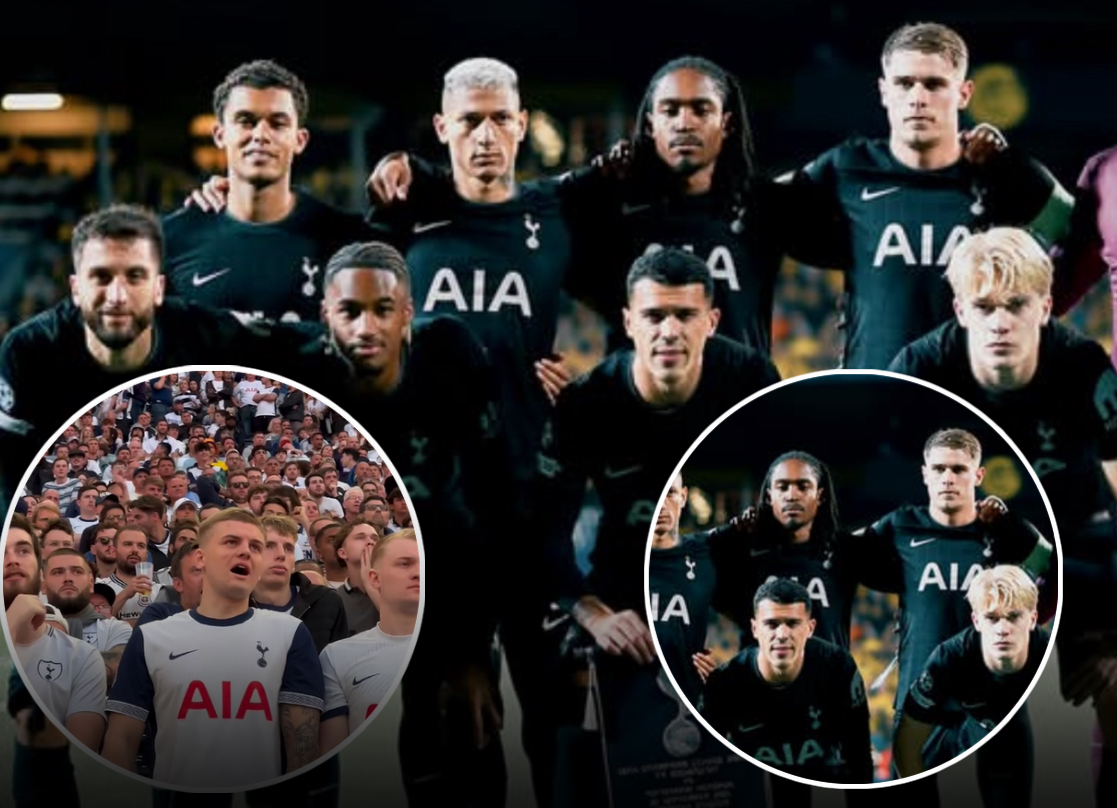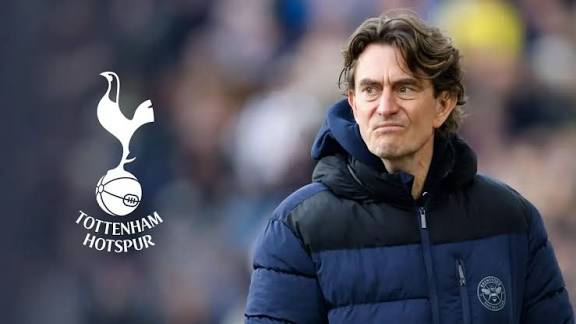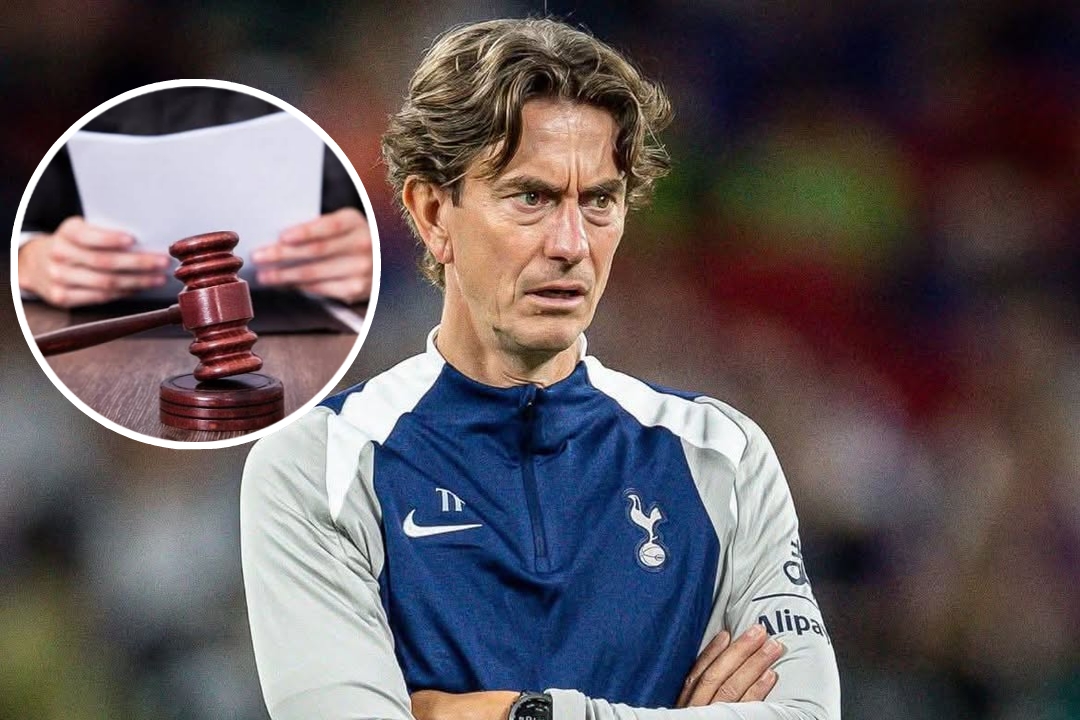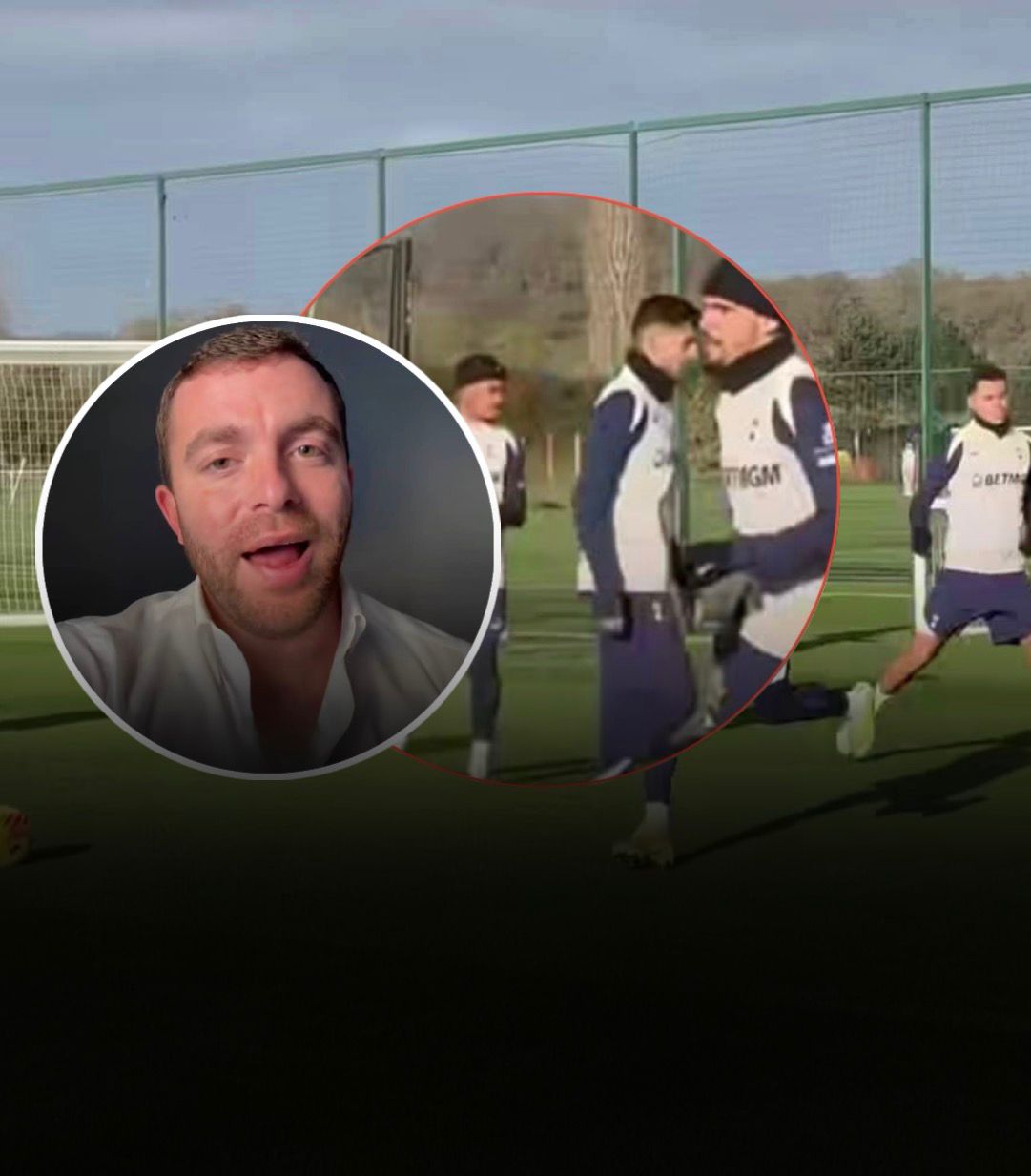TOTTENHAM HOTSPUR PLAYER DELETES EVERY REFERENCE TO THE CLUB ON HIS SOCIAL MEDIA AFTER BEING TROLLED BY FANS OVER DRAW TO BODO/GLIMT
The fallout from Tottenham Hotspur’s disappointing draw against Norwegian side Bodo/Glimt in the Champions League has taken an unexpected and dramatic turn, with defender deleting all references to Spurs from his social media profiles after being subjected to a barrage of online trolling from fans. The move has sparked widespread debate about the growing toxicity of football social media spaces, player mental health, and the future of his career at the North London club.
Spurs Held to Shock Result in Norway
Tottenham traveled to Norway expecting a strong performance to consolidate their group stage campaign, but the game ended in a frustrating draw against Bodo/Glimt. While the result itself was disappointing, it was the performance of certain individuals that drew the most criticism.
He was handed a rare start by manager Thomas Frank, endured a torrid evening at right-back. Struggling to cope with Bodo’s high press and energetic wingers, he was caught out of position several times, leading to dangerous chances for the home side. His lack of composure on the ball further frustrated fans, who had expected him to step up after limited opportunities in previous games.
When the final whistle blew with Spurs unable to secure the three points, much of the ire online was directed at him, with hashtags and posts singling him out as the “weak link.”
Social Media Trolling Reaches Breaking Point
In the aftermath, Spurs fans flooded social media platforms like X (formerly Twitter), Instagram, and TikTok with critical comments about Spence. While some expressed frustration in measured tones, others went much further, mocking and ridiculing the 24-year-old defender with memes, sarcastic edits, and outright abuse.
By Friday morning, eagle-eyed fans noticed that Spence had quietly removed all Tottenham Hotspur-related content from his social media accounts. His Instagram bio, which had previously included a reference to being a Spurs player, was scrubbed clean, and his profile picture — once him in Spurs colors — was replaced with a neutral photo.
This move immediately fueled speculation that Spence had reached breaking point with fan criticism and was reconsidering his future at the club. Some fans expressed sympathy, urging patience with a player who has struggled to find his footing since arriving in North London, while others doubled down on their view that he was “not good enough” for Tottenham.
Who is Djed Spence?
For context, Spence arrived at Tottenham in the summer of 2022 after a breakthrough season with Nottingham Forest, where he played a pivotal role in their promotion to the Premier League. Spurs signed him from Middlesbrough in a deal worth around £20 million, with then-manager Antonio Conte famously describing him as a “club signing” rather than one of his personal requests.
This distinction meant Spence was always on the back foot at Tottenham. He found first-team minutes hard to come by under Conte, who preferred the more experienced Emerson Royal and the versatile Matt Doherty at right wing-back. After Conte’s departure, interim managers also gave him limited chances, and he was loaned out to Rennes in France and later to Leeds United in the Championship.
When Thomas Frank took charge at Spurs, there was initial optimism that Spence could revive his career. Known for working well with young players, Frank gave him a preseason chance, but consistency has eluded him. The Bodo/Glimt performance only intensified doubts about whether he has the mentality and technical quality to thrive at a club pushing for top-four Premier League finishes.
The Mental Health Factor
Footballers facing criticism is nothing new, but the speed and venom with which online communities amplify mistakes have escalated in recent years. Social media, once hailed as a bridge between players and supporters, is increasingly becoming a toxic environment.
In Spence’s case, deleting Tottenham references may not simply be an impulsive act of anger but rather a defensive mechanism to shield himself from the relentless negativity. Psychologists have noted that athletes often experience heightened anxiety, stress, and self-doubt when subjected to public trolling, especially when they are not established stars with deep reservoirs of confidence and experience.
Several high-profile players, including Bukayo Saka, Marcus Rashford, and Raheem Sterling, have openly spoken about the damaging effects of online abuse. Clubs, the Premier League, and even FIFA have made attempts to pressure social media platforms into greater regulation, but the issue persists.
Fan Reactions Split
Unsurprisingly, Tottenham’s fanbase is divided on the incident. Some supporters argue that criticism is part of the job and that players at elite clubs must learn to withstand scrutiny, particularly when they underperform. Others, however, believe the abuse directed at Spence went far beyond constructive criticism.
One fan posted: “Spence wasn’t great, but the trolling is way over the top. These guys are human beings, not robots.” Another wrote: “If he can’t handle pressure from fans, he’ll never make it at Spurs. This is not Nottingham Forest anymore.”
The divide highlights a broader tension in modern football fandom — the line between legitimate criticism and damaging personal attacks.
Tottenham’s Silence
As of now, Tottenham Hotspur have not released an official statement regarding the situation. Insiders suggest the club is monitoring Spence’s wellbeing closely and may offer him additional support behind the scenes. Thomas Frank, known for his calm and empathetic approach, is expected to address the issue in his next press conference.
If the club fails to manage this situation carefully, it risks not only alienating a player but also sending the wrong message about its stance on player welfare.
What Next for Spence?
The incident raises serious questions about Spence’s future at Tottenham. Already on the fringes of the squad, his decision to delete Spurs content suggests a strained relationship between player and fanbase — and potentially between player and club.
The January transfer window could provide a solution, with loan or permanent moves likely if his situation does not improve. Championship clubs or mid-table Premier League sides may be willing to gamble on his raw pace and potential, but his stock has undoubtedly fallen since his Forest days.
For Spence personally, this may be a pivotal career crossroads: does he fight to prove his doubters wrong at Tottenham, or does he seek a fresh start elsewhere where the scrutiny might be less intense?
The Bigger Picture
This episode is emblematic of a wider trend in football: the intense scrutiny and instant judgment that modern players face in the social media age. A single poor performance can overshadow months of hard work, with online platforms magnifying every mistake into a viral talking point.
For Tottenham, it also highlights a recurring issue with recruitment. The club has often invested in players with potential but struggled to integrate them into the first team effectively. Spence’s trajectory so far is worryingly similar to other signings who failed to make the grade at Spurs.
At a time when the club is trying to rebuild under Thomas Frank and re-establish itself as a consistent Champions League contender, these types of distractions are far from helpful.
Conclusion
Djed Spence’s decision to delete all references to Tottenham from his social media may appear dramatic, but it underscores the very real pressure that professional footballers face in the digital era. While some fans see it as a sign of weakness, others view it as a necessary step for his mental wellbeing.
What is certain is that this situation cannot be ignored. Tottenham must balance accountability with empathy, ensuring that players are supported while also maintaining high standards. For Spence, the next few weeks may define his career trajectory, and for Spurs, the incident serves as yet another reminder of the complexities of managing both talent and expectations in one of football’s most unforgiving environments.








Post Comment